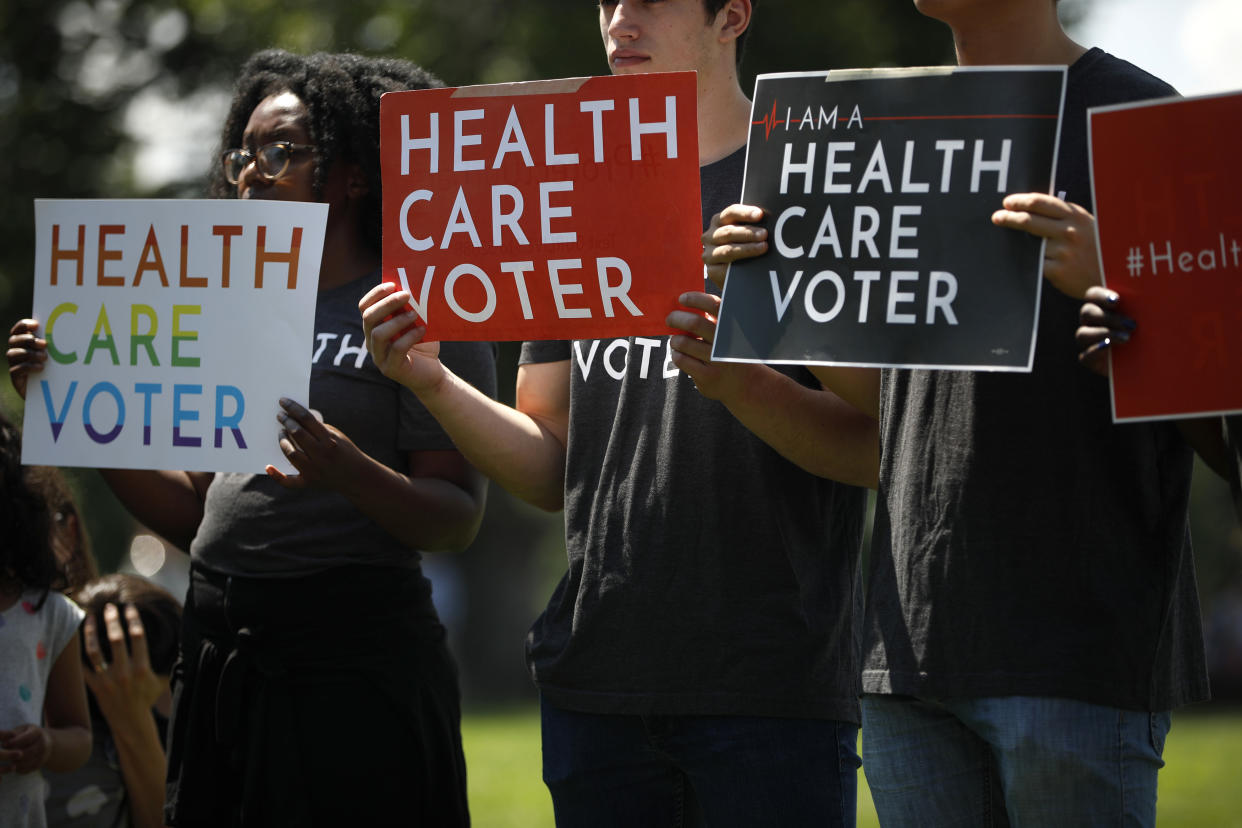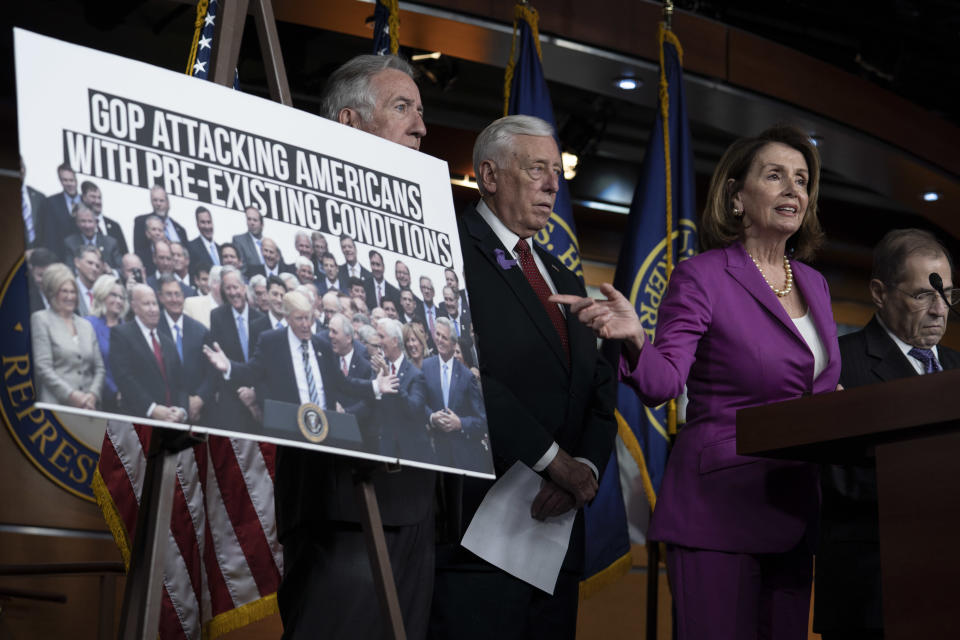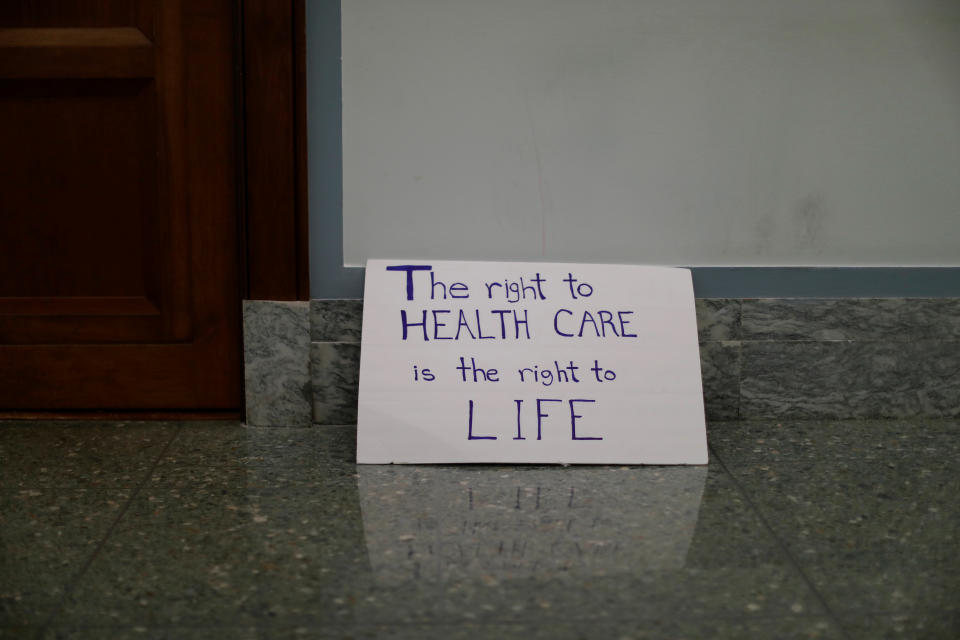Democrats 2018: It's the health care, stupid

If you were only following the midterms via cable news and Twitter, you might guess that districts from sea to shining sea were focused on special counsel Robert Mueller’s investigation and the latest tweets from President Trump. But voter interest and campaign advertising are mostly focused on a different issue: health care.
The nonpartisan Kaiser Family Foundation released a poll last week that found a majority of voters both nationally and in battleground areas with competitive elections said health care was “very important” in making their voting decisions this November. That same survey found 30 percent of voters said health care was the “most important” issue for them, followed by the economy and jobs at 21 percent and both gun policy and immigration at 15 percent.
This is potentially good news for Democrats since it appears that the Republican attempt to overturn Obamacare last year has backfired on them. A June survey from the Pew Research Center found that 48 percent of respondents thought Democrats would do a better job on health care versus just 32 percent for Republicans. Earlier this month Pew found that 60 percent of Americans believed the federal government should be responsible for making sure everyone has health care, up 9 points from 2016 and 13 from 2014.
The campaigns are paying attention to what voters are interested in and shaping their advertising accordingly. An analysis by the Wesleyan Media Project found that over 50 percent of pro-Democratic ads in federal House and Senate races mentioned health care, more than five times the rate as in 2016 and more than double any election since 2008. Republicans have responded, with over 30 percent of pro-GOP ads mentioning health care, second only to the 2010 cycle, when Republican messaging was dominated by a call to repeal Obamacare.

“After the Affordable Care Act passed, Democrats ran away from health care as a campaign talking point while Republicans used the issue as a central point of attack,” said Erika Franklin Fowler, co-director of the Wesleyan Media Project, in a statement released with the analysis. “Unified Republican control of government has changed the calculus for both parties this cycle, with Democrats going on offense and Republicans searching for new ways to talk about the issue.”
Many of the Republican health care ads have attempted to have it both ways, as GOP candidates who are suing to overturn Obamacare or already voted yes on its repeal make the case that one of the program’s main tenets — protections for Americans with preexisting conditions — are a key priority for them. (The various Obamacare repeal plans put forth in 2017 did not include measures that would control or subsidize costs for those with preexisting conditions, which would make them essentially meaningless for patients with predictable and costly medical needs.) The question of protecting preexisting conditions has come up in debates ranging from Wisconsin’s gubernatorial race and the Missouri Senate election to tight congressional contests in New York and Texas.
The expansion of Obamacare’s Medicaid provision is also polling well in traditionally conservative areas. States had the opportunity to use federal funds to expand health care for low-income residents, but some states with Republican governors or state legislatures declined to expand the program. As a result, four red states — Idaho, Montana, Utah and Nebraska — have a referendum on Medicaid expansion on the ballot, which required gathering thousands of signatures in each state. Public polling on the issue has been scarce but is generally favorable for expansion of the coverage. In June, 63 percent of likely Utah voters said they supported expansion. In August, a poll found that 45 percent of Idahoans were in favor, with 19 percent saying no and 36 percent unsure. A similar measure passed 59 to 41 in Maine last year.

The focus on health care — and Republicans’ poor polling on the issue — could be one reason that Trump and conservative media outlets are attempting to change the conversation to immigration, promoting conspiracy theories about Central American migrants hundreds of miles from the border coming to vote illegally in the midterm elections. Democratic leaders Rep. Nancy Pelosi and Sen. Chuck Schumer issued a statement over the weekend telling their candidates to stay focused.
“The president is desperate to change the subject from health care to immigration because he knows that health care is the number one issue Americans care about and that Mitch McConnell, Paul Ryan, and Republicans in Washington are making a mess of our health care system, causing premiums to increase and care to decrease while threatening to gut protections for preexisting conditions,” wrote Pelosi and Schumer in a joint statement. “Democrats are focused like a laser on health care and will not be diverted.”
_____
Read more Yahoo News midterms coverage:




